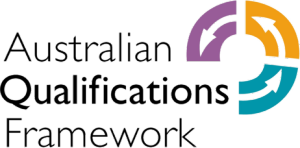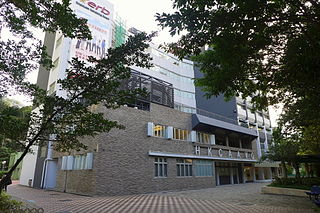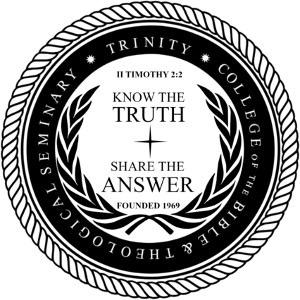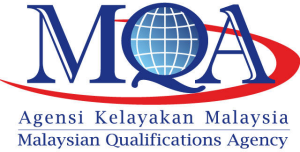Related Research Articles
An academic degree is a qualification awarded to a student upon successful completion of a course of study in higher education, usually at a college or university. These institutions often offer degrees at various levels, usually divided into undergraduate and postgraduate degrees. The most common undergraduate degree is the bachelor's degree, although some educational systems offer lower-level undergraduate degrees such as associate and foundation degrees. Common postgraduate degrees include engineer's degrees, master's degrees and doctorates.

The University of Buckingham (UB) is a non-profit private university in Buckingham, England and the oldest of the country's six private universities. It was founded as the University College at Buckingham (UCB) in 1973, admitting its first students in 1976. It was granted university status by royal charter in 1983.

The Quality Assurance Agency for Higher Education is the United Kingdom higher education sector's independent expert quality body. It has a remit to maintain and enhance the quality of teaching and learning in tertiary education in the United Kingdom and beyond. It conducts quality assessment reviews, develops reference points and guidance for providers, and conducts or commissions research on relevant issues.

The Australian Qualifications Framework (AQF) specifies the standards for educational qualifications in Australia. It is administered nationally by the Australian Government's Department of Industry, with oversight from the States and Territories, through the Standing Council of Tertiary Education Skills and Employment. While the AQF specifies the standards, education and training organisations are authorised by accrediting authorities to issue a qualification.

The Hong Kong Council for Accreditation of Academic and Vocational Qualifications (HKCAAVQ), (HKCAA) is a statutory body established under the HKCAAVQ Ordinance which came into effect on 1 October 2007.

Trinity College of the Bible and Theological Seminary, also known as Trinity College of the Bible, is a conservative evangelical Bible college and seminary located near Evansville, Indiana. Trinity offers distance education programs at undergraduate, graduate, and doctoral degree levels for self-directed adult learners. Programs include Certificate, Associate, Bachelor, Master, and Doctorate studies. In 2006, Trinity claimed more than 7,000 active students worldwide.
A professional degree, formerly known in the US as a first professional degree, is a degree that prepares someone to work in a particular profession, practice, or industry sector often meeting the academic requirements for licensure or accreditation. Professional degrees may be either graduate or undergraduate entry, depending on the profession concerned and the country, and may be classified as bachelor's, master's, or doctoral degrees. For a variety of reasons, professional degrees may bear the name of a different level of qualification from their classification in qualifications, e.g., some UK professional degrees are named bachelor's but are at master's level, while some Australian and Canadian professional degrees have the name "doctor" but are classified as master's or bachelor's degrees.
A postgraduate certificate (abbreviated as PGCert, PG Cert or PGC is a postgraduate qualification at the level of a master's degree.

The London School of Business and Finance is a private business school in the United Kingdom, owned by the for-profit education corporate group Global University Systems. It was founded in 2003 by the entrepreneur Aaron Etingen. By 2015 it had become one of England's largest private colleges.
The Malaysian Qualifications Framework or the MQF is a unified system of post secondary qualifications offered on a national basis in Malaysia. It is administered by the Malaysian Qualifications Agency (MQA), a statutory body under the purview of the Ministry of Higher Education (MOHE).

The Malaysian Qualifications Agency is a statutory body in Malaysia set up under the Malaysian Qualifications Act 2007 to accredit academic programs provided by educational institutions providing post secondary or higher education and facilitate the accreditation and articulation of qualifications.

The Commission for Academic Accreditation (CAA) is the national quality assurance and regulatory agency responsible for evaluation and accreditation of higher educational institutions and universities in the United Arab Emirates. Established in 2000, it comes under the country's Ministry of Education.

Macao Polytechnic University (MPU) is a public university in Macau, China. It was established in 1981.
Higher education accreditation is a type of quality assurance process under which services and operations of post-secondary educational institutions or programs are evaluated to determine if applicable standards are met. If standards are met, accredited status is granted by the agency.
The Tertiary Education Quality and Standards Agency (TEQSA) is Australia's independent national quality assurance and regulatory agency for higher education.

St Patrick's College is a for-profit private higher education college based in the United Kingdom with its main campus located at Tower Hill in London. The college offers Higher National Diploma programmes in business and health care. Although its roots trace back to a Catholic primary school founded in Soho in 1803, the college was established in its present form in 1999. Since 2013 it has been a wholly owned subsidiary of the corporate group Global University Systems.

FIBAA is an internationally experiencedagency for quality assurance for programme and system accreditation and certification in higher education. Founded in 1994 by top associations in the Swiss, Austrian, and German business sectors, FIBAA aims to ensure transparency and quality in the education sector. The FIBAA is organized as a non-profit organization. While headquartered in Bonn, North Rhine-Westphalia, Germany, the foundation’s legal seat is in Zurich, Switzerland.

The National Agency for Quality Assessment and Accreditation is the authorised agency of the Spanish government whose aim is to provide external quality assurance for the Spanish higher education system and to contribute to its constant improvement through evaluation, certification and accreditation.
References
- ↑ Patrick McGhee (20 October 2014). "What has QAA ever done for UK universities? A lot, actually". The Guardian .